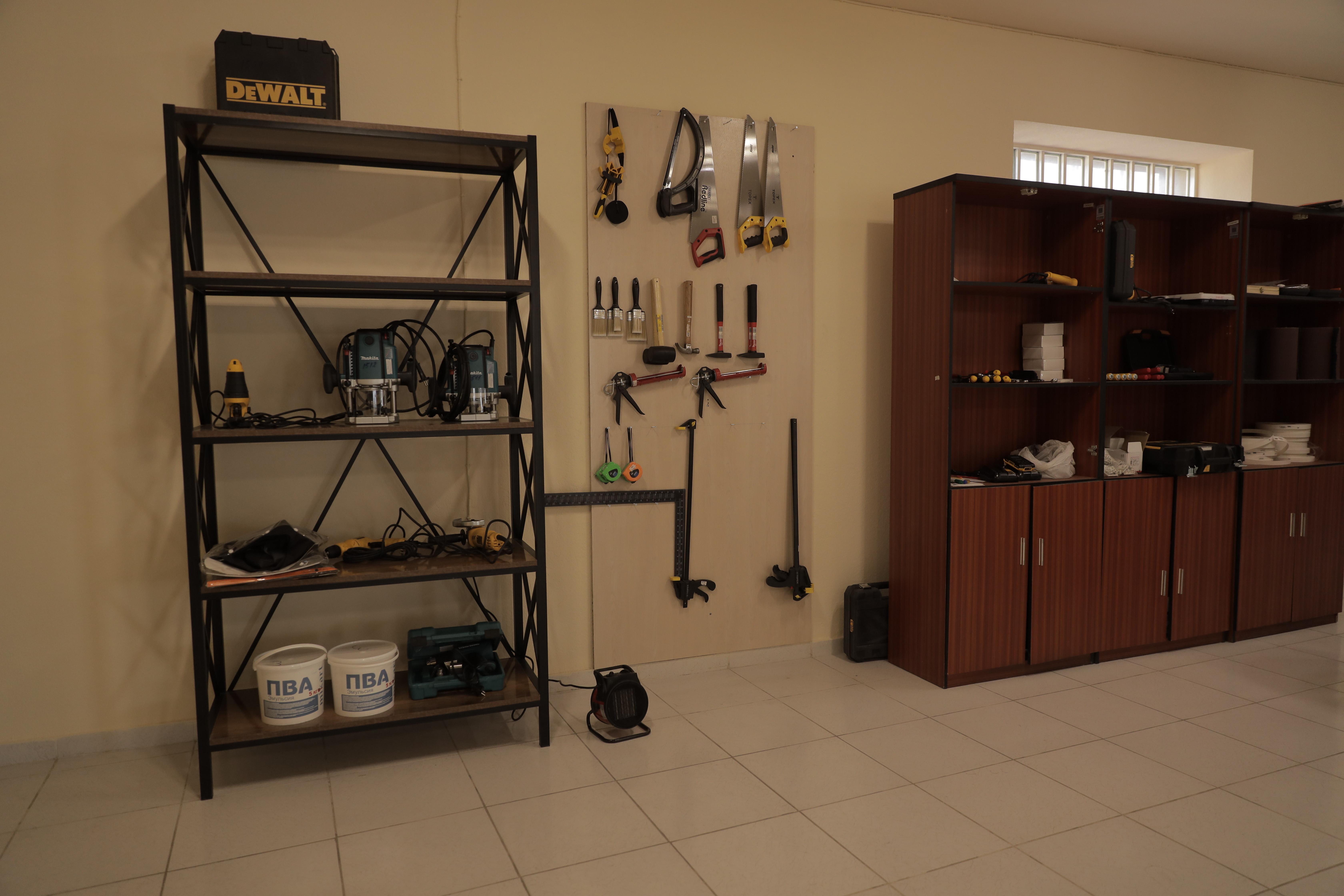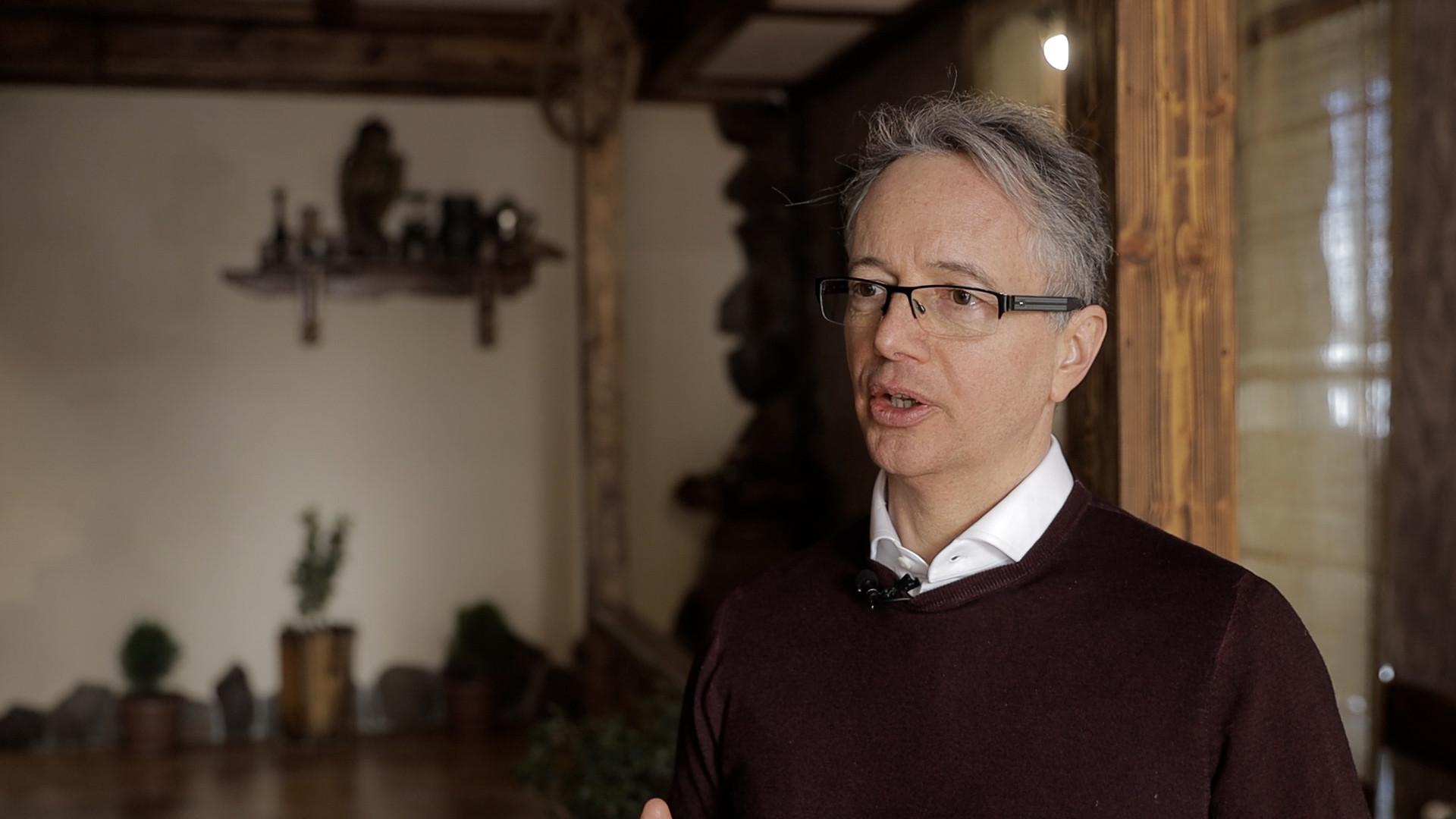
Armenia: Probation Beneficiaries Get Vocational Training Center
Armenia’s Ministry of Justice Probation Service, in November 2022, opened the first vocational training center in the country’s Ararat province. The Council of Europe Office in Yerevan implemented the "Support the scaling-up of the probation service in Armenia" project as part of the 2019-2022 Action Plan for Armenia. The vocational training center for probation beneficiaries was opened with funding of this project.
17,350,000 AMD (€23,000) were allocated for the purchase of necessary equipment and supply materials for the center. The vocational training center for probation beneficiaries offers four courses to probation beneficiaries starting in 2023: furniture making basics, sewing basics, cosmetology skills and hairdressing skills. Classes at the training center will begin in March.
On February 17, Martina Schmidt (Head of the Council of Europe Office in Yerevan), Claus Neukirch (Director of Programme Coordination of the Council of Europe), Levon Balyan (Armenian Deputy Minister of Justice, visited the Ararat vocational training center to get acquainted with the work of the center.
Probation Service Head Gevorg Simonyan displayed the equipment and raw materials acquired by the center and introduced the visitors to the production process. A group of young men were making furniture, while women were designing and sewing bed linen. The center is furnished with equipment, raw materials, and supplies necessary for craftworking and sewing. Simonyan told the European guests that the finished furniture will be provided to the beneficiaries and encouraged them to ensure product quality, saying: "Make it so that you would take it home yourself."
“The center helps probation beneficiaries acquire new professional skills to help them become more attractive to potential employers in the future. It also has a positive effect on improving the psychological state of the probation beneficiaries, their family and social ties and reducing the risk of recidivism," said Simonyan
When we asked Claus Neukirch if he thinks training at the center will positively change the behavior of probation beneficiaries, he answered: "The CoE supports these people so that they can enter the labor market by learning various crafts and earn a living using their skills."
Simonyan said training at the center will start in March. The first group of beneficiaries has already been selected and they hope they will have the qualifications necessary to find a job.
Evidence shows that closed institutions don’t facilitate inmate behavioral improvement. To our question, what effects they expect from creating this center, by educating probation beneficiaries and engaging them in work, Simonyan said: "We constantly talk about resocialization, and we need to understand the ways it should be organised. One of the ways is to educate our beneficiaries so that they can acquire new skills and find their place in society."
Simonyan said the biggest challenge is to make beneficiaries want to acquire a new education. When the beneficiary expresses a desire to acquire new knowledge, they try to create that opportunity.
"Of course, we have just started this work. This is the first group. We will finish their training in the spring. I hope that after receiving learning in this educational center, beneficiaries will find their place in life," Simonyan added.
The Council of Europe started its probation sector cooperation with the Armenian government in 2013 and implemented several projects in this regard. According to Arman Poghosyan (Senior Project Officer at the CoE Office in Yerevan), important steps have been taken to create a rehabilitation environment for probation beneficiaries. This was primarily done through a rehabilitation program developed and piloted in 2022 and interventions aimed at changing stakeholder perceptions of probation. The project supports probation beneficiaries to develop pro-social behaviors and relationships.
In the last ten years, the CoE has supported the following:
- Development of the Law on Probation, introduction of new tools and methods for its application.
- Contributed to staff capacity development and increased awareness of the role of probation.
- A risk and needs assessment tool for adults and juveniles was improved and piloted, and seventy probation officers were trained to use the tool correctly. The revised risk and needs assessment tool was introduced to the Probation Service in January 2022.
- A training course for judges was developed and included in the curricula of the Academy of Justice.
- Training programs have been developed to enhance the capacity of Probation Service staff. The service was complemented by a group of fourteen who trained forty Probation Service employees.
Arman Poghosyan said reforms implemented in Armenia’s probation sector are in line with current criminal justice reforms. Their goal is to gradually move from a punitive to a rehabilitative approach, expanding the types of non-custodial sentences, considering deprivation of liberty as a last resort.
 Videos
Videos Photos
Photos







Write a comment